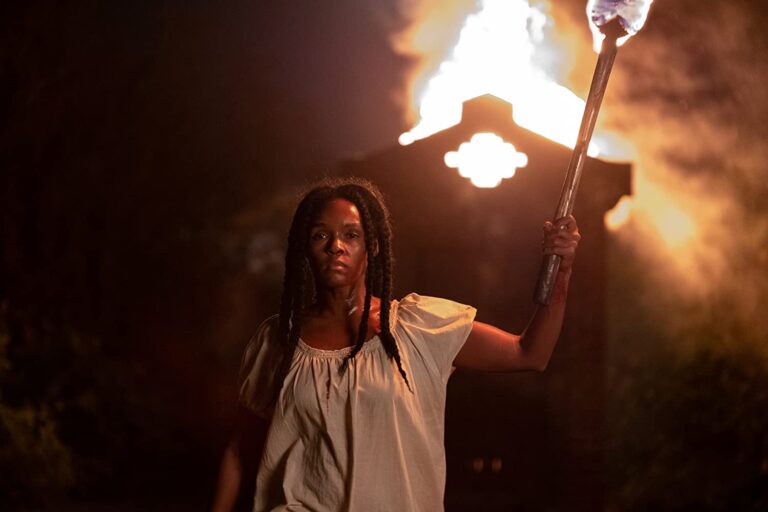The slow-motion, single-take opening of Antebellum, arriving this week on VOD after its original April theatrical release was cancelled in the wake of a pandemic, sets the stage for the horror to come: after rounding up a few runaway slaves, a group of Confederate soldiers on a Louisiana plantation coldly execute a distraught female with a point-blank pistol shot, taunting her bound and chained husband while Eden (Janelle Monáe) looks on from the sidelines.
Over the next 40 minutes, filmmakers Gerard Bush and Christopher Renz will subject Eden to all manner of indignities, including being whipped with a belt, branded, and repeatedly raped by the Confederate general (Eric Lange) who leads the regiment. She also endures constant torment from the cruel Captain Jasper (Jack Huston) and contemptuous glares from the plantation’s owner, Elizabeth (Jena Malone), who’ll become an important figure later in the story.
But before we get there, Antebellum shifts gears and introduces the audience to Veronica Henley (also Monáe), an author and activist about to embark on a speaking tour to promote her latest book. As she deals with micro-aggressions from an interviewer and casual racism from the hotel concierge — seemingly regular occurrences in Veronica’s world — she reconnects with an old friend (a delightfully sharp-tongued Gabourey Sidibe) for a night on the town, but events don’t exactly play out as planned.
The circumstances by which Veronica and Eden’s stories intersect are best left discovered, as they may be genuinely surprising for some viewers. Indeed, from a purely conceptual point of view, Bush and Renz have hit upon a compelling idea, but the execution of said idea falls well short of its potential. Antebellum throws subtlety and nuance out the window for its third act, taking a more heavy-handed approach to resolution. There are some striking visuals to be consumed, and Monáe has an undeniably commanding screen presence, but nothing seems to fit together quite right.
The final 30 minutes of Antebellum feels too hollow, too contrived, as though the filmmakers were more concerned with hitting certain notes in hopes of eliciting a particular audience response — key moments in the third act would almost certainly have been met with cheers from theatergoers — than weaving a more refined narrative. Consider it a missed opportunity, albeit one that still might be worth a look.

